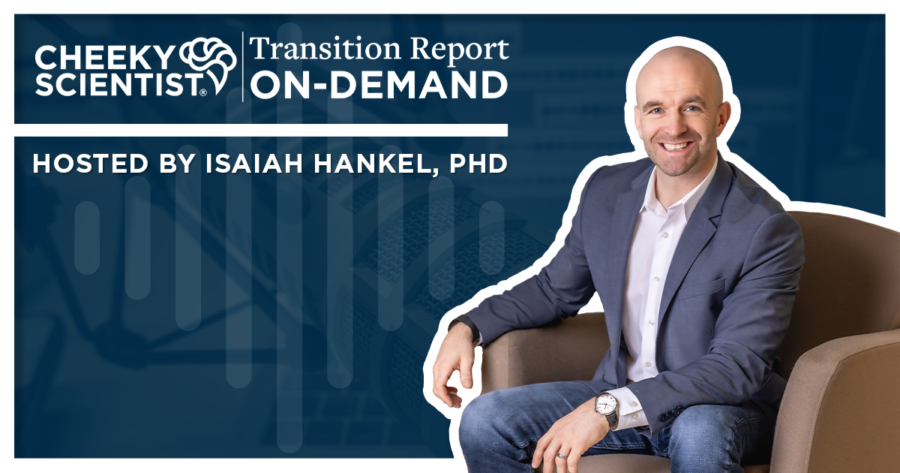Hosted By

Chief Executive Officer Cheeky Scientist

Join Isaiah as he shares four rejection coping mechanisms that will keep your PhD job search moving forward – despite disappointment.
Here’s a quick rundown of this week’s episode…
- First, Isaiah addresses the frustration of rejection and explains why it can be particularly hard for PhDs
- Next, he breaks down the four coping mechanisms that successful PhDs use to mitigate the fallout of a missed opportunity
- Finally, Isaiah closes by explaining that video interview etiquette can outweigh a candidate’s qualifications
From This Week’s Show…
Every PhD Deals With Rejection In Their Job Search
Searching for a job is stressful. There’s no way around it.
It’s time-consuming, it’s grueling, and it often comes with rejection.
Failure is woven into the fabric of even the best-executed job search.
And while failure is hard on anyone, it’s particularly demoralizing to PhDs.
Sure, you’ve spent years doing nothing more than mastering the art of failure –failed research methods, dead-end projects, rejected papers.
But for many PhDs, being rejected for a job feels different. It feels way more personal.
For many, their self-worth lies solely in the hands of the success (or failure) of an employer saying “yes” to them.
If you feel this on any level, don’t despair.
Any PhD who has tried to break into industry has dealt with the pain of rejection.
So, what sets successful PhDs apart from those who quit before they get hired?
They develop coping mechanisms that mitigate the stress and anxiety of rejection and of a job search as a whole.
Keep Your Job Search Momentum Going With These Four Coping Mechanisms
First, control how you react.
After being rejected, it’s only natural to feel angry.
Whatever you’re feeling, allow yourself those feelings. But give your emotions an expiration date.
Negative emotions aren’t necessarily bad by themselves. It’s when we simmer in those emotions that they become harmful to our job search.
So take a step back and assess.
Process what happened – determine your weaknesses and instill a plan to overcome them.
Also, don’t isolate yourself.
Talk to people about your frustrations – ask them for their unadulterated opinion.
You never know which of your connections, friends, or colleagues can help.
Second, stop ruminating.
My first point was to control how you react in the first place.
This point is about how to get out of the destructive, obsessive cycle of rumination.
As humans, and particularly as PhDs, we tend to get caught in a hamster wheel of negative thoughts.
Think of a time when someone was critical of your work or questioned your abilities. How long did you ruminate on this?
And really, what good did it do?
Likely, none at all. Fight back against these obsessive thoughts, particularly the nagging mantra “I want to know why they didn’t choose me.”
Most companies will never tell you.
…
** for the full podcast, check out the audio player above.
If you’re ready to start your transition into industry, you can apply to book a free Transition Call with our founder Isaiah Hankel, PhD or one of our Transition Specialists. Apply to book a Transition Call here.










